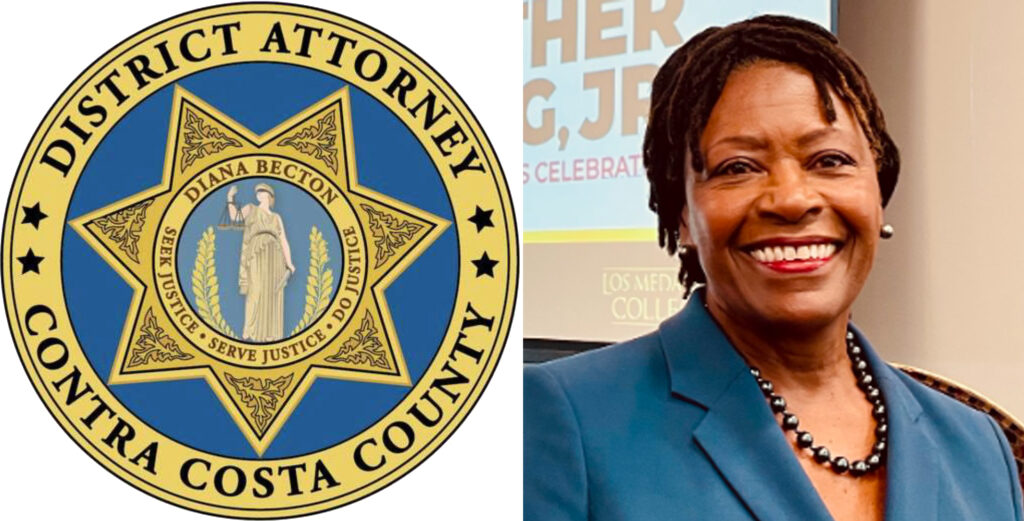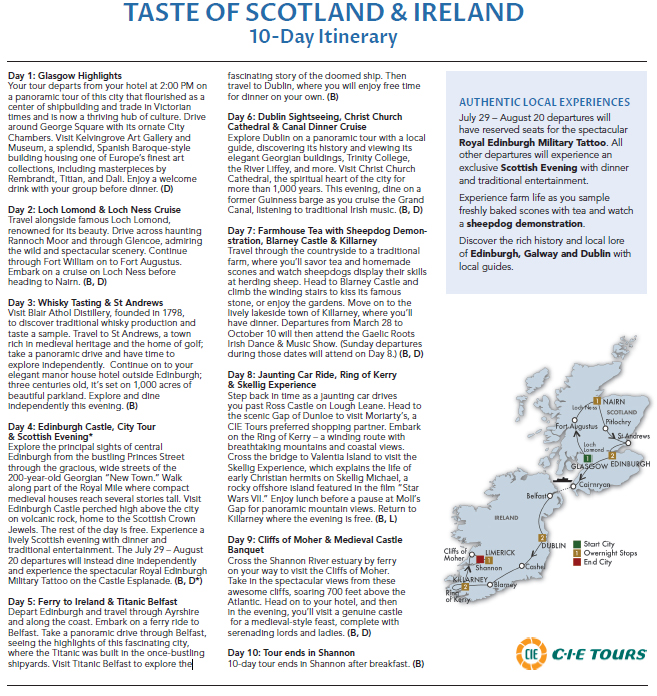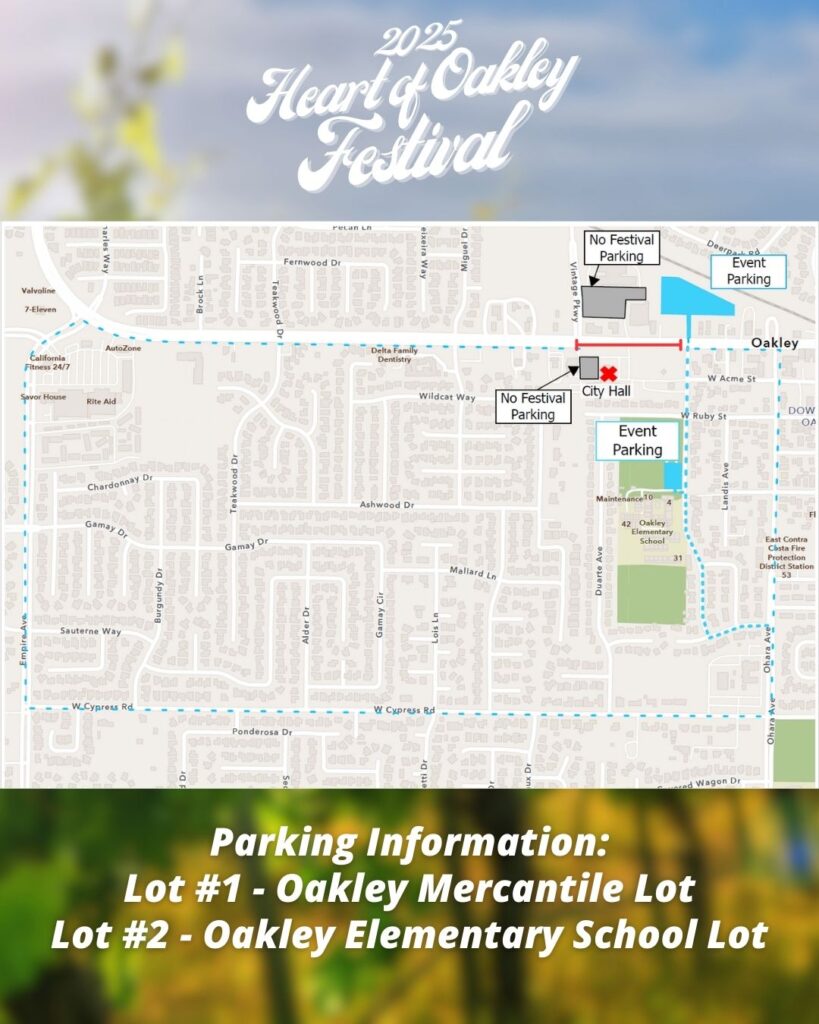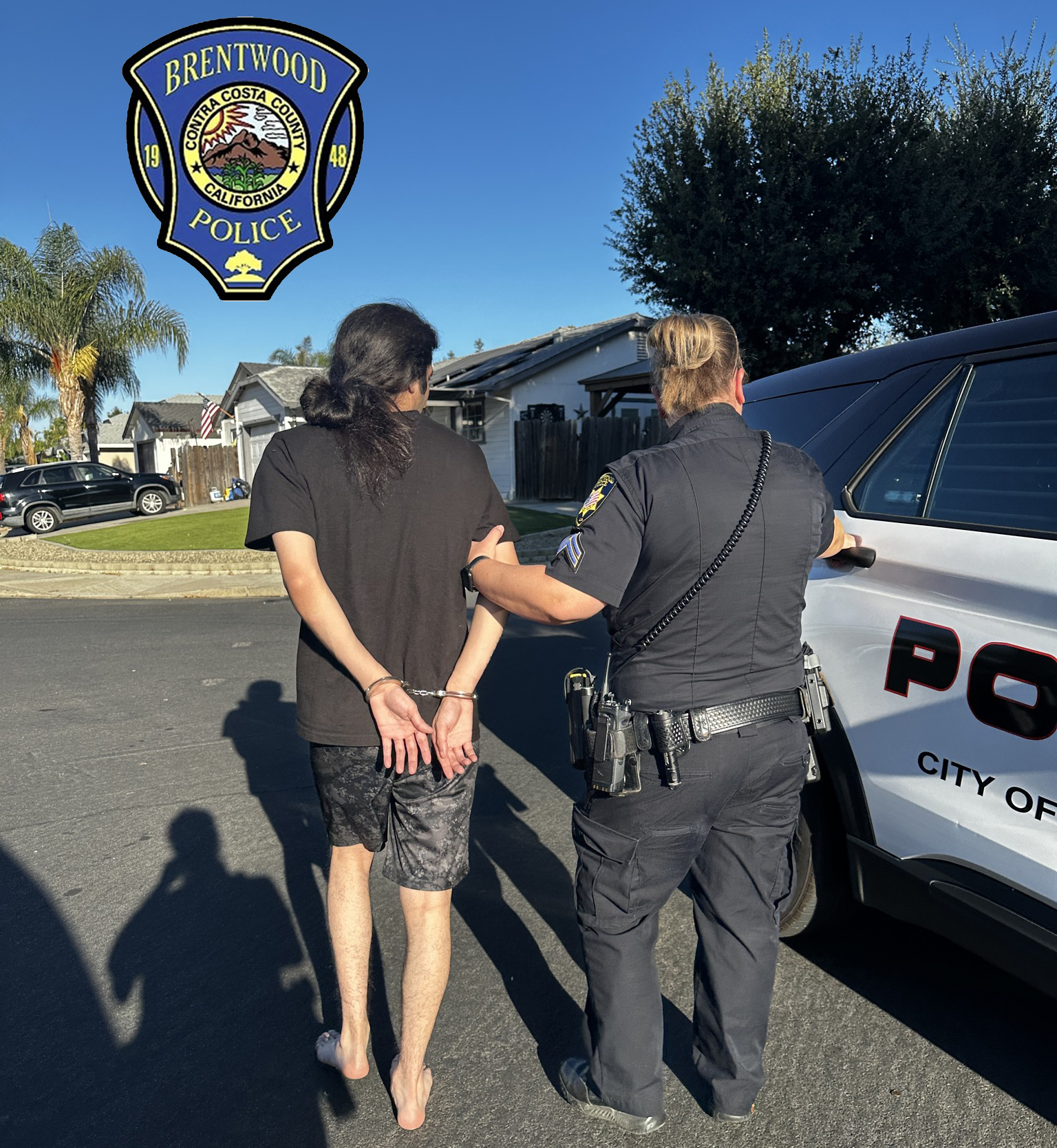Two adult women victims discovered inside residence knew 43-year-old Howard Wang
By Sgt. Mike Watson, Walnut Creek Police
On Thursday, September 18, 2025, at approximately 11:45PM, Walnut Creek Police officers responded to a 911 call reporting a disturbance with possible gunfire in the 100 block of Kelobra Court. Upon arrival, officers discovered two adult women deceased inside the residence.
Following the initial investigation, on Sept. 19th, an adult male – Howard Chen Hao Wang, 43-year-old resident of Walnut Creek (born 4/21/1982), who was known to both victims – was taken into custody. He was charged with two counts of 187 P.C. Murder, is currently booked at the Martinez Detention Facility and is being held without bail.
At this time, investigators do not believe there are any outstanding suspects and there is no indication of an ongoing threat to public safety. This investigation remains active, and no additional details are available for release.
The Walnut Creek Police Department would like to thank the Concord Police Department and the Contra Costa County Office of the Sheriff for their assistance in this investigation.
Anyone with information about this incident is encouraged to contact the Walnut Creek Police Department at (925) 943-5844 or provide information anonymously through the tip line at (925) 943-5865. Case # 25-29002
According to the Contra Costa County Sheriff’s Department, the five-foot, 10-inch tall, 183-pound Wang has his next court appearance in Superior Court, Dept. 5 in Martinez at on Tuesday, Sept. 23 at 1:30 p.m.
According to localcrimenews.com, he was also arrested on Jan. 7, 2023 by Walnut Creek Police for battery on a spouse, cohabitant or former spouse, removing, destroying or damaging a wireless communication device to prevent summoning assistance or law enforcement. He was previously arrested in November 2014 by Coalinga CHP for driving with a suspended license, a restricted view and speed over 70 MPH.
Allen D. Payton contributed to this report.
Read More31-year-old Justino Lopez-Perez held on $2.3 million bail, 23-year-old Erickson Melendez arrested last year for violent crimes held on $750K bail; third suspect also arrested
By Concord Police Department
As previously reported, on Tuesday, Sept. 16, 2025, shortly after 10:20 PM, three gunshot wound victims arrived at John Muir Medical Center in Concord and reported they were shot while in a parking garage in the 2000 block of Salvio Street in downtown Concord. Patrol officers responded and descriptions of the suspects and their vehicle were developed. These descriptions were shared with area law enforcement agencies. Just over an hour later, deputies from the Contra Costa County, Office of the Sheriff located the suspect vehicle. From that stop, two occupants were detained and arrested. Detectives from the Investigations Division were called to take over the investigation and continue following up on leads throughout the night and the next day.
On Wednesday, at about 6:30 PM, a third suspect was arrested in relation to the shooting. During the arrest and subsequent search, evidence related to the shooting was found. On Thursday, the Contra Costa County, District Attorney’s Office filed charges related to the shooting.
The following two men were charged with the shooting: Justino Lopez-Perez (31 years old, resident of Bay Point, born 11/16/1993) was charged with 664/187 PC- Attempted murder, 182(a)(1) PC- Conspiracy, 26100(c) PC- Discharge a firearm from a vehicle, 245(b) PC-Assault with a firearm, and use of a firearm enhancements. Erickson Adoni Melendez (23 years old, resident of Concord, born 6/2/2002) was charged with 182(a)(1) PC – Conspiracy and 26100(c) PC- Discharge a firearm from a vehicle.
According to the Contra Costa County Sheriff’s Department, the five-feet, eight-inch tall, 143-pound Lopez-Perez is being held in the Martinez Detention Facility on $2.3 million bail and his next court appearance is scheduled for Tuesday, Sept. 23 at 1:35 p.m. in Dept. 5, Superior Court in Martinez.
According to localcrimenews.com, Melendez was also arrested on Sept. 15, 2024, by Contra Costa Sheriff’s Deputies for kidnapping, battery on a spouse, cohabitant or former spouse and assault with a deadly weapon or assault with force likely to produce great bodily injury. According to the Contra Costa County Sheriff’s Department, the five-feet, 10-inch tall, 175-pound suspect is also being held in the Martinez Detention Facility on $750,000 bail. He has the same court appearance date, time and location as Lopez-Perez.
We would like to thank the deputies from the Contra Costa County Office of the Sheriff, staff at John Muir Hospital, and community members who supported and assisted in this investigation. The three men who were shot were treated at area hospitals and are expected to survive. If you have any information about this incident, please contact Detective Enrique Espino at (925) 671-3426.
Allen D. Payton contributed to this report.
Read MoreJoel Lawrence Benitzhar faces maximum sentence of life in prison, $250,000 fine
By U.S. Attorney’s Office, Northern District of California
OAKLAND – A criminal complaint was unsealed on Friday, Sept. 12, 2025, charging Joel Lawrence Benitzhar with the federal crime of attempted enticement and coercion of a minor victim to engage in illegal sexual conduct. Benitzhar was arrested yesterday and made his initial appearance in federal district court in Oakland this morning.
According to the criminal complaint and court documents, the National Center for Missing and Exploited Children received a CyberTip from a popular social media platform that an account, later determined to be associated with Benitzhar, 18, of Martinez, California, contained possible enticement and coercion of at least nine potential minor victims.
The complaint alleges that in chat messages with Minor Victim 1, Benitzhar claimed to have “traded CP” (i.e., child pornography), had sexual intercourse with the minor victim, and arranged to meet up with the minor victim in January 2025. Benitzhar is also alleged to have messaged another social media user that he met with a 14-year-old girl in real life.
United States Attorney Craig H. Missakian, Federal Bureau of Investigations (FBI) Special Agent in Charge Sanjay Virmani, and Homeland Security Investigations (HSI) Acting Special Agent in Charge Jeffrey Brannigan made the announcement.
Benitzhar is currently in federal custody. Benitzhar was next scheduled to appeare in district court on Sept. 16, 2025, for a detention hearing before U.S. Magistrate Judge Peter Kang.
A criminal complaint merely alleges that crimes have been committed, and all defendants are presumed innocent until proven guilty beyond a reasonable doubt. If convicted, the defendant faces a maximum sentence of life in prison and a fine of $250,000 for the charge of attempted enticement and coercion of a minor in violation of 18 U.S.C. § 2422(b). Any sentence following conviction would be imposed by the court after consideration of the U.S. Sentencing Guidelines and the federal statute governing the imposition of a sentence, 18 U.S.C. § 3553.
Assistant U.S. Attorney Kelly I. Volkar is prosecuting the case with the assistance of Amala James and Yenni Weinberg. The prosecution is the result of an investigation by the Internet Crimes Against Children Task Force, including the FBI, HSI, the Contra Costa County District Attorney’s Office, and the Walnut Creek Police Department, with assistance from the Martinez Police Department.
Anyone who has information relevant to this case can report it by contacting the FBI at (415) 553-7400 or tips.fbi.gov.
Read More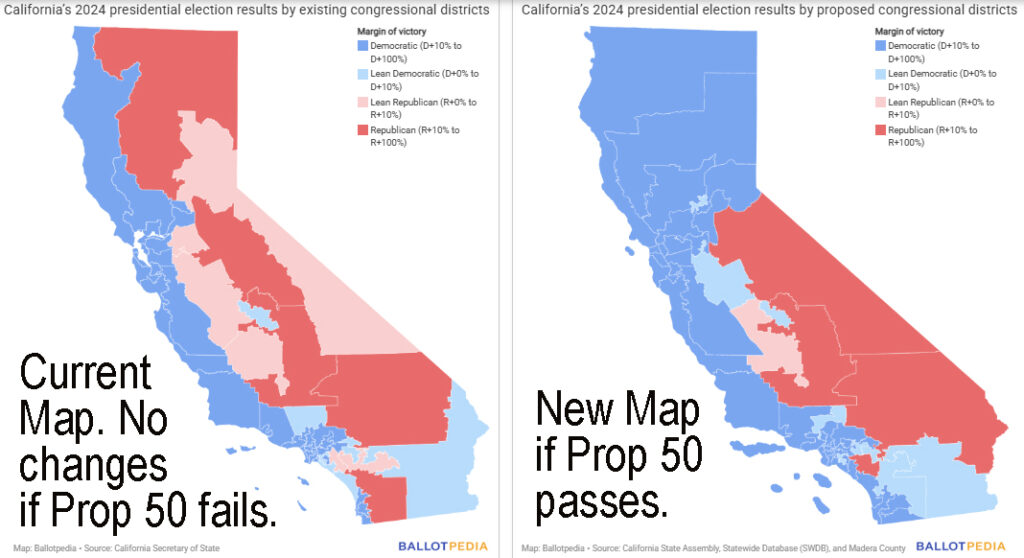
Under Proposition 50, five Republican-held congressional districts would shift to become more Democratic, based on presidential election results from 2024. Kamala Harris (D) would have won three—District 1, District 3, and District 41—with margins above 10%. District 48 would lean Democratic, with a margin of 3%. District 22 would have shifted four percentage points toward Democrats; however, Donald Trump (R) would have won the district with a margin of 2%. The table above provides additional information about these five districts. Source: Ballotpedia
Presented in Concord, Antioch, San Ramon and online by League of Women Voters of Diablo Valley
Learn the Pros and Cons of Proposition 50, the Election Rigging Response Act, a temporary redistricting measure on the statewide election scheduled for November 4. The League of Women Voters of Diablo Valley will sponsor three in-person events and one online session for the public to hear arguments and funding for and against the measure, which has potential nationwide impact.
Ballots will be mailed October 6.
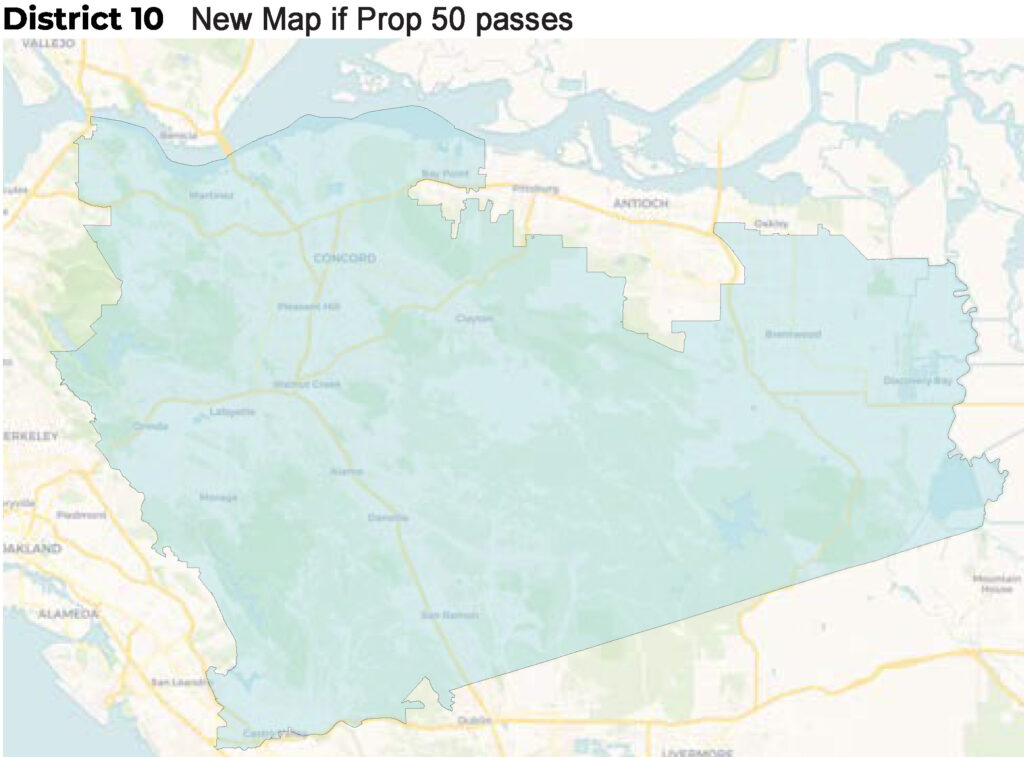
Proposed new California Congressional District 10 map if Prop. 50 passes. Source: California State Assembly Elections Committee AB604
Background
Proposition 50 was a response by Governor Newsom and the California State Legislature to Texas Legislature’s recent mid-cycle redistricting. But the California ballot measure was approved and signed into law on Aug. 21 before Texas’ new congressional district were approved on Aug. 29, which was done in response to a lawsuit by the Biden Administration’s Department of Justice.
According to a report by Democracy Docket, the lawsuit was “filed in 2021 by the DOJ under the Biden administration that alleged the state’s new redistricting plans drawn with 2020 census data violated Section 2 of the Voting Rights Act because they ignored the Lone Star State’s growing minority population and instead diluted the voting strength of voters. The lawsuit was later consolidated with several other similar lawsuits.”
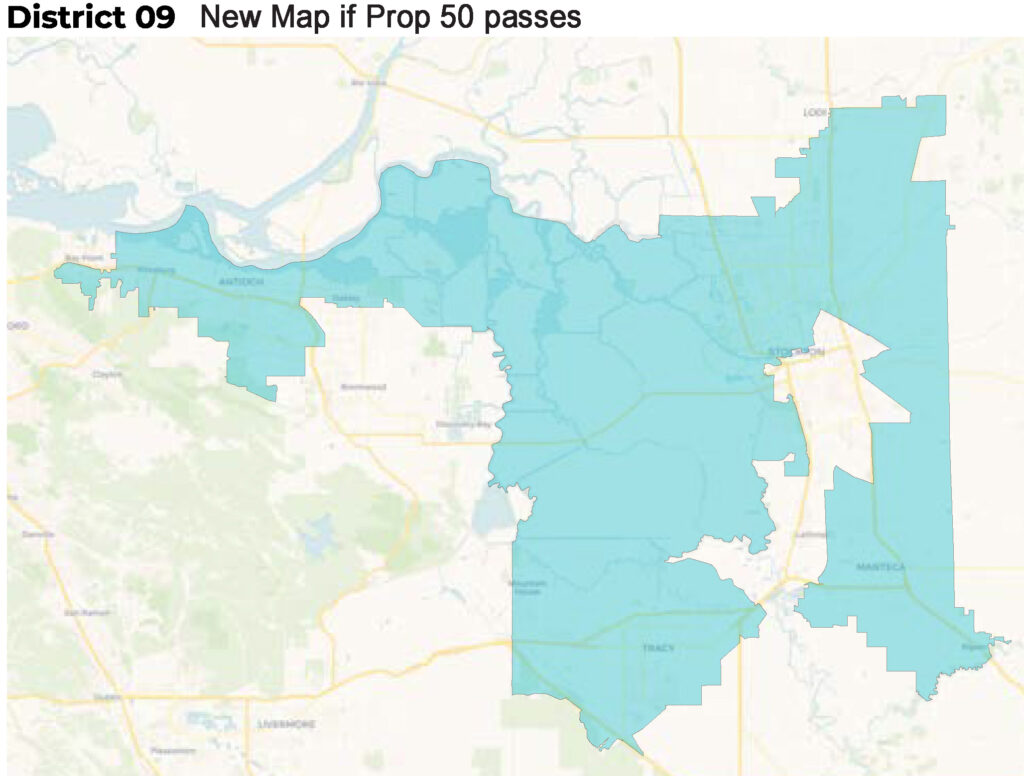
Proposed new California Congressional District 9 map if Prop. 50 passes. Source: California State Assembly Elections Committee AB604
While in March the Trump Administration’s DOJ “dropped its claims against Texas that its…state legislative and congressional maps violate the Voting Rights Act, litigation is ongoing, with a coalition of pro-voting groups — including the League of United Latin American Citizens, the Southwest Voter Registration Education Project, Mi Familia Vota and others — continuing their legal efforts for fair maps in Texas.”
Later, according to a July 15th report by Politico, President Trump told reporters he wanted Texas to attain five additional Republican congressional seats in the 2026 election through redistricting, in order to maintain a Republican majority in the U.S. House of Representatives.
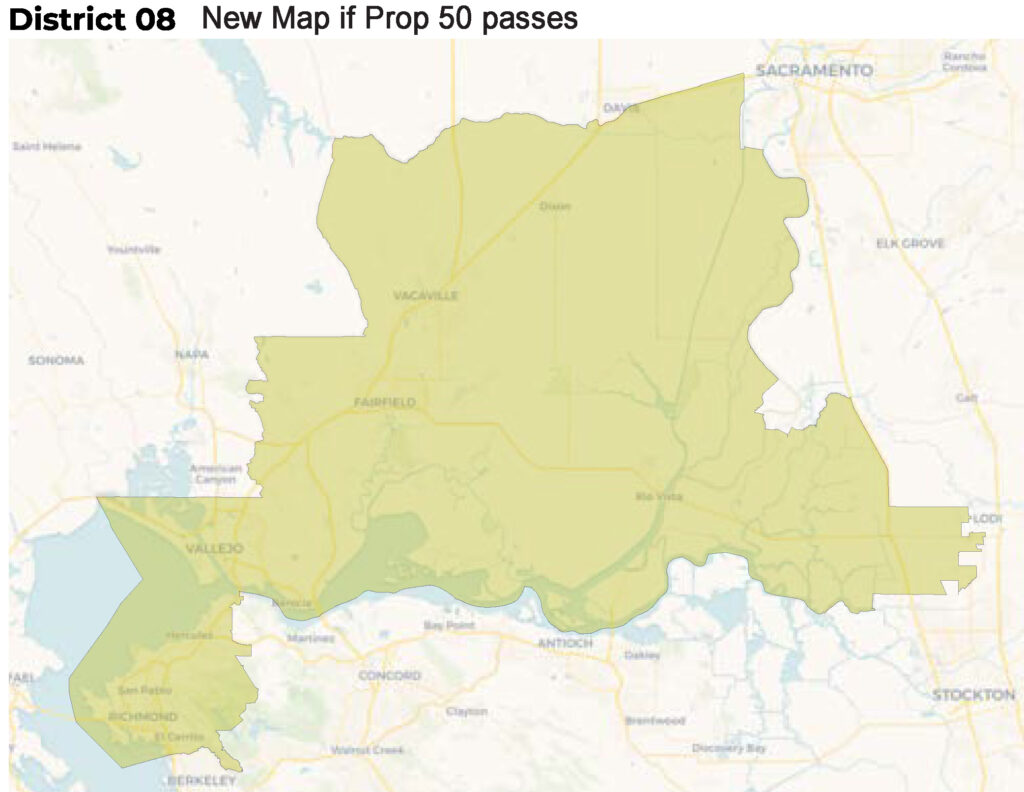
Proposed new California Congressional District 8 map if Prop. 50 passes. Source: California State Assembly Elections Committee AB604
According to the LWV, “The California measure’s stated intent is to counteract Texas’ actions and help ensure that the 2026 U.S. mid-term elections are conducted on a level playing field, without an unfair advantage for either party.” While California’s Prop 50 puts the decision in the hands of California voters the new district lines were drawn and approved by the Democrats in the state legislature and Governor Newsom.
UPDATE: Unlike California’s redistricting requirements included in Article 21, Section 2 of the state’s constitution which, by a vote of the people, mandated the creation of the independent Citizens Redistricting Commission to redraw district lines each decade following the Census, according to the State of Texas redistricting website, “No Texas constitutional or statutory provisions address congressional redistricting…Unlike legislative redistricting, congressional redistricting does not come within the authority of the Legislative Redistricting Board if the legislature fails to enact a valid plan during the regular session that is meeting when the decennial census is published. The issue may be taken up in a subsequent special session of the legislature or, if the legislature fails to enact a congressional plan or if the governor does not call a special session, the districts may ultimately be drawn by a state or federal district court.” So, the Texas legislature is responsible for redrawing congressional district lines to create new maps.
California voters will decide in November whether or not to confirm the proposed, new Congressional district maps for our state.
See Prop. 50 proposed Congressional Districts Map.
See current maps drawn by Citizens Redistricting Commission.
Event Details:
Events are free to the public. Registration is appreciated.
Tuesday, September 30, 6:00– 7:00 p.m. – Concord Library, 2900 Salvio Street, Concord. To RSVP for this event, email marion@lwvdv.org.
Thursday, October 2, 7:00 – 8:00 p.m. – Genesis Church, 1800 Woodland Drive, Antioch. RSVP for this event. To RSVP for this event, email marion@lwvdv.org
Thursday, October 2, 7:00 – 8:00 pm – Dougherty Station Library, 17017 Bollinger Canyon Road, San Ramon. Register for this event.
Thursday, October 9, 1:00 – 2:00 p.m. – Virtual; this event will have simultaneous Spanish translation and will be recorded for future viewing online. Registration is required to receive the link. Register for this event.
For more information, contact janet@lwvdv.org.
The League of Women Voters is a non-partisan, grassroots organization working to protect and expand voting rights and ensure everyone is represented in our democracy. We empower voters and defend democracy through advocacy, education, and litigation at the local, state and national levels. For more information visit www.lwvdv.org.
Gail Murray and Allen D. Payton contributed to this report.
Read MoreOn September 18th, 2025, a federal jury in Oakland, CA found a former Antioch police officer guilty of conspiracy against rights, marking another step toward accountability in a painful chapter for Antioch and Pittsburg. (See related article) (See related article)
This case is part of a broader investigation that began in 2021 into misconduct by several officers entrusted to protect the public, including actions that fall under the broad category of crimes involving moral turpitude.
When a law is broken—especially by those sworn to enforce it—it is not just a legal violation, but an offense against the entire community. That is why in every criminal case, the District Attorney represents The People of the State of California. The harm caused by these individuals was felt by the public at large, and it is our duty and responsibility to pursue justice on behalf of all those affected.
I am grateful to our federal partners, our state and local investigators, and prosecutors who worked tirelessly on these cases on behalf of the residents of Antioch and Pittsburg. Thanks to these combined efforts, both cities have begun to rebuild trust and take meaningful steps toward restoring integrity in their public institutions. These efforts are crucial to ensuring safer, more just communities for all. Our office remains firmly committed to that mission.
Diana Becton
District Attorney, Contra Costa County
Read MoreMusic, dance, food, vendor booths and more!
By City of Oakley Recreation Department
We are excited to celebrate our 13th Heart of Oakley Festival happening on Saturday, September 20, 2025, from 11AM to 4PM in Civic Center Plaza and on Main Street from Vintage Parkway to Norcross!
Heart of Oakley Festival is an annual open-air market that brings local makers, food trucks, non-profits, families, and community members together. Join us as we highlight local businesses and community members during this exciting event!
This year Project 4 Band takes the stage with local dance groups throughout the day. The beer garden will be operated by local non-profit East County All Star Fundraising. Additionally, we will have a FREE trackless train, a mechanical bull, and an inflatable mini golf game for families to enjoy. Join us as we highlight local businesses and community members during this exciting event!
Check out our stage schedule:
10:50am: Studio 55 Ukulele
11:05am: Jabris Rucker Children’s Dance
11:20am: Project 4 Band
12:05pm: Brentwood Blaze Cheer
12:20pm: Step 2 This Dance
12:35pm: Project 4 Band
1:30pm: Stepz Dance Fitness Studio
1:45pm: East County Performing Arts
2:00pm: Project 4 Band
3:00pm: Ballet Folklorico Jaracue
3:15pm: Hiphop-Natyam Dance Academy
3:30pm: Freedom High School Band

Following the crash of the suspects’ car, Orey Douglas was arrested, and a gun was recovered on August 4, 2024. Photos: Brentwood PD
28-year-old Orey Douglas of Antioch and 38-year-old Sam Gray of Oakley
Douglas has a history of arrests since 2014 for murder, corporal injury, assault, sex with a minor, vehicle theft, false imprisonment, more
By Brentwood Police Department
On August 4th, 2024, Brentwood officers responded to an armed robbery that occurred at 50 Sand Creek Road. The victim reported being robbed at gunpoint by two suspects, identified as 28-year-old Orey Azniam Douglas of Antioch and 38-year-old Sam Donte Gray of Oakley (born 11-10-85). After both suspects were identified they were placed under arrest and charges were filed.
As previously reported, they robbed Los Mexicanos Market, Douglas was arrested that night and Gray remained at large until he was arrested on August 8, 2024. Douglas was charged with second-degree robbery and three firearms-related charges.
On March 3, 2025, the suspectswere found guilty of armed robbery and assault with a deadly weapon, along with numerous firearm charges and enhancements.
As of early this month, Gray will serve a 13-year prison sentence and Douglas will serve a 7-year prison sentence.
According to localcrimenews.com, the six-feet, three-inch tall, 215-pound Douglas is Black and has a history of arrests dating back to 2014 by multiple agencies including police departments in Antioch, Hayward, Fremont, BART, Oakland, San Jose, Vacaville, as well as Sheriff’s Departments in Contra Costa, Alameda and Solano counties, and Contra Costa CHP. Charges include murder, inflicting corporal injury on a spouse or cohabitant, assault with any means of force likely to produce great bodily injury, multiple gun crimes, sex with a minor and unlawfully causing a minor to engage in a commercial sex act by force, carjacking, vehicle theft, receiving stolen property, false imprisonment, threatening a witness, evading police and resisting arrest.
According to the Contra Costa Sheriff’s Department, the five-feet, nine-inch tall, 217-pound Gray is Black and was held in the Martinez Detention Facility on $140,0000 bail.
According to localcrimenews.com, he was arrested for conspiracy to commit a crime, robbery, assault with a firearm on a person, felony parole violation and addict in possession of a firearm. Gray was previously arrested on Sept. 8, 2023, by the Alameda County Sheriff’s Department on order for a person’s removal from prison to appear in court.
This case was a collaborative effort with our officers, Detectives, along with the Contra Costa County District Attorney’s Office. We are pleased this investigation has resulted in sentencing, and we commend the hard work and dedication of everyone involved in bringing this case forward.
Allen D. Payton contributed to this report.
Read More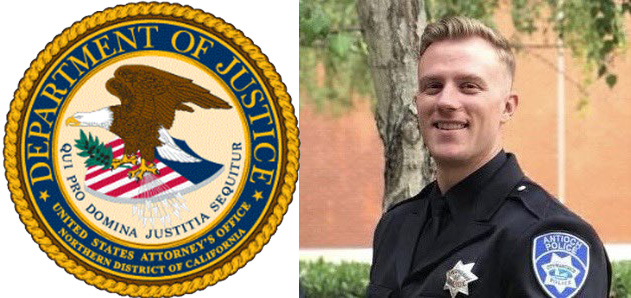
Former Antioch Police Officer Devon Wenger was found guilty by a jury on September 18, 2025. Herald file photo
Devon Wenger could face 10 years in prison
Previously convicted on steroid, obstruction charges, claims innocence, is a whistleblower being framed, suing APD
One of 10 Antioch, Pittsburg cops investigated by DA, FBI
By U.S. Attorney’s Office, Northern District of California
OAKLAND – A federal jury, on Thursday, September 18, 2025, convicted former Antioch police officer Devon Wenger of one count of conspiracy against rights. The jury’s verdict follows a seven-day trial before Senior U.S. District Judge Jeffrey S. White.
Wenger, 33, was previously employed as a police officer with the Antioch Police Department. According to court documents and evidence presented at trial, Wenger conspired with other Antioch Police Department officers to use unreasonable force to injure, oppress, threaten, or intimidate residents of Antioch, California.
“Public trust must be at the forefront of the duty to protect. By using unnecessary and unreasonable force under the guise of law enforcement, Wenger betrayed the community he was entrusted to protect. Officers who hold themselves above the law and dishonor their oath of office will be held to account. The people of Antioch deserve no less,” said United States Attorney Craig H. Missakian.
“Today’s conviction makes clear that when an officer violates the civil rights of those he was sworn to protect, it will not be overlooked or excused. This marks the second time a jury has held Devon Wenger accountable, and it reflects the FBI’s commitment to pursuing justice in every instance where authority is abused. We will continue working with our partners to ensure that those who betray the public’s trust face consequences,” said FBI Acting Special Agent in Charge Agustin Lopez.
According to the evidence at trial, Wenger and two other Antioch Police Department officers, Morteza Amiri and Eric Rombough, communicated with each other and others about using and intending to use excessive force against individuals in and around Antioch. The uses of excessive force included deployment of a K9, deployment of a 40mm “less lethal” launcher, and other unnecessary violence. The evidence showed that Wenger and others deployed uses of force as punishment to subjects beyond any punishment appropriately imposed by the criminal justice system. Wenger also withheld details about uses of excessive force from police reports and other official documents.
The jury convicted Wenger of one count of conspiracy against rights in violation of 18 U.S.C. § 241. The court dismissed a second count that charged Wenger with deprivation of rights under color of law in violation of 18 U.S.C. § 242.
Previously, Wenger claimed one incident of excessive use of force in which a 40mm less lethal round was deployed was under direct order of his superior officer.
Previously Convicted on Steroid, Obstruction Charges, Claims Innocence, is a Whistleblower Being Framed, Suing APD
As previously reported, Wenger was convicted in May of conspiracy to distribute steroids and obstruction of justice following a jury trial in April 2025. However, following that conviction the former Antioch officer said, “Despite what the government is falsely boasting nationwide about me I never have had anything to do with steroids. Never took them, never possessed them, and sure as heck never conspired to distribute them. I took PEPTIDES, gonadorelin to be specific. It’s legal and NOT a steroid. I took the peptides to recover from COVID, COVID almost killed me and had me in a hospital bed and left my body in shambles. I still feel the effects of it to this day and will never fully recover. The FBI even seized gonadorelin and numerous other peptides failed to disclose that.”
He also provided further explanation of the steroid charges.
Regarding the obstruction of justice charge, Wenger said, “Additionally, the government falsely claimed I deleted contacts and Venmo contacts from my phone, yet that is not true. These contacts and Venmo contacts remain in my phone to this day. They never left. Now, my phone was backed up to iCloud the night before the phone seizure and the government could have searched my iCloud and seen that I never deleted anything from my phone, yet they did not even though they seized everybody else’s iCloud. This is because they are pushing a false narrative.”
Further, he claimed earlier this year he’s a whistleblower being framed.
“I am innocent. I am a whistleblower facing a whistleblower retaliation prosecution to silence me. I am being framed on fabricated and tampered evidence. Yes, the FBI and the US Attorneys on this case have fabricated and tampered with evidence, in addition to misrepresenting evidence and even lying to the court, and the public. They have gone so far as to manipulate and suppress the documents that prove this (including exculpatory evidence) in the metadata data of their own discovery documents in order to push their false narrative. The truth will surface. That’s all I can say.”
“In addition to this we have filed a civil lawsuit against APD which outlines everything they put me through which led to these bogus charges against me,” Wenger added.
He shared copies of both his Motion of Acquittal and for a New Trial, and lawsuit against the Antioch Police Department and former Antioch Police Lieutenant Powell Meads, who was Wenger’s superior officer. The complaint claims retaliation, discrimination, hostile workplace harassment, failure to prevent harassment, discrimination or retaliation and requests damages and a trial.
In addition, in a November 2024 interview, Wenger and his then-attorney Nicole Castronovo argued evidence used against Wenger was unlawfully obtained, undermining his right to a fair trial. Castronovo further alleged prosecutors improperly withheld key exculpatory information from the defense.
They further claimed, in testimony given on October 25, 2024, Larry J. Wallace, Senior Inspector with the Contra Costa County District Attorney’s Office, admitted he illegally mishandled sensitive data and failed to seal private information during his involvement in the FBI investigation of the Antioch Police Department in 2021. The mishandling of that evidence resulted in the unauthorized use of Wenger’s personal communications and violated his legal right to privacy. It also violated the stringent rules of CalECPA (California Electronic Communications Privacy Act).
Remanded to Custody Awaiting Dec. 2 Sentencing
The Court ordered Wenger remanded to custody pending sentencing, which is scheduled for Dec. 2, 2025. He faces a maximum sentence of 10 years in prison. Any sentence will be imposed by the Court only after consideration of the U.S. Sentencing Guidelines and the federal statute governing the imposition of a sentence, 18 U.S.C. § 3553.
The case is being prosecuted by the National Security & Special Prosecutions Section and the Oakland Branch of the United States Attorney’s Office. This prosecution is the result of an investigation by the FBI and the Office of the Contra Costa County District Attorney.
One of 10 Antioch, Pittsburg Cops Prosecuted, Convicted Part of DA, FBI Investigations
These civil rights charges against Wenger were brought as part of an investigation into the Antioch and Pittsburg police departments that resulted in multiple charges against 10 current and former officers and employees of these two police departments for various crimes ranging from the use of excessive force to fraud. The status of these cases, all of which are before Senior U.S. District Judge Jeffrey S. White, is below:
below:
| Case Name and Number | Statute(s) | Defendant
(Bold: multiple case numbers) |
Status |
|---|---|---|---|
| Fraud
23-cr-00264 |
18 U.S.C. §§ 1349 (Conspiracy to Commit Wire Fraud; 1343 (Wire Fraud) | Patrick Berhan | Sentenced to 30 months custody, 2 years supervised release concurrent with 24-cr-157 on 9/5/24 |
| Morteza Amiri | Sentenced to 84 months custody, 3 years supervised release concurrent with 23-cr-269 on 6/24/25 | ||
| Amanda Theodosy a/k/a Nash | Sentenced to 3 months custody, 3 years supervised release 11/15/24 | ||
| Samantha Peterson | Sentenced to time served, 3 years supervised release 4/24/24 | ||
| Ernesto Mejia-Orozco | Sentenced to 3 months custody, 3 years supervised release on 9/19/24 | ||
| Brauli Jalapa Rodriguez | Sentenced to 3 months custody, 3 years supervised release on 10/25/24 | ||
| Obstruction
23-cr-00267 |
18 U.S.C. §§ 1519 (Destruction, Alteration, and Falsification of Records in Federal Investigations); 1512(c)(2) (Obstruction of Official Proceedings); 242 (Deprivation of Rights Under Color of Law) | Timothy Manly Williams | Pleaded guilty 11/28/23, status conference 10/7/25 |
| Steroid Distribution
23-cr-00268 |
21 U.S.C. §§ 846 (Conspiracy to Distribute and Possess with Intent to Distribute Anabolic Steroids), 841(a)(1), and (b)(1)(E)(i) (Possession with Intent to Distribute Anabolic Steroids) | Daniel Harris | Pleaded guilty 9/17/24, status conference 10/7/25 |
| 21 U.S.C. §§ 846, 841(a)(1), and (b)(1)(E)(i) (Conspiracy to Distribute and Possess with Intent to Distribute Anabolic Steroids);
18 U.S.C.§ 1519 (Destruction, Alteration, and Falsification of Records in Federal Investigations) |
Devon Wenger | Convicted at trial 4/30/25, sentencing pending | |
| Civil Rights
23-cr-00269 |
18 U.S.C. §§ 241 (Conspiracy Against Rights), 242 (Deprivation of Rights Under Color of Law); § 1519 (Destruction, Alteration, and Falsification of Records in Federal Investigations) | Morteza Amiri | Sentenced to 84 months custody, 3 years supervised release concurrent with 23-cr-264 on 6/24/25 |
| 18 U.S.C. §§ 241 (Conspiracy Against Rights), 242 (Deprivation of Rights Under Color of Law) | Eric Rombough | Pleaded guilty 1/14/25, status conference 10/7/25 | |
| 18 U.S.C. §§ 241 (Conspiracy Against Rights), 242 (Deprivation of Rights Under Color of Law) | Devon Wenger | Convicted at trial 9/18/25, sentencing 12/2/25 | |
| Steroid Distribution
24-cr-00157 |
21 U.S.C. §§ 841(a)(1) and (b)(1)(E)(i) (Possession with Intent to Distribute Anabolic Steroids) | Patrick Berhan | Sentenced to 30 months custody, 2 years supervised release concurrent with 23-cr-264 on 9/5/24 |
| Bank fraud
24-cr-00502 |
18 U.S.C. § 1344(1), (2) (Bank fraud) | Daniel Harris | Pleaded guilty 9/17/24, status conference 10/7/25 |
Read More
Christian Sanchez & Jonathan Sanchez of Brentwood being held on $130K and $20K respectively; Ruben Carrion-Rojas of Knightsen also arrested
By Brentwood Police Department
On Wednesday, Sept. 17, 2025, around 7:45AM, Brentwood officers were called to the ARCO gas station located at the 6900 block of Brentwood Blvd. for an armed robbery with a knife that just occurred. The reporting party provided Dispatch with a detailed description of the suspects who were last seen walking in the immediate area.
As officers began circulating the area, one of our officers saw the suspects who attempted to flee, however they were ultimately taken into custody.
24-year-old Christian Sanchez of Brentwood (born 4/9/2001), 21-year-old Jonathan Sanchez of Brentwood (born 8/3/2004), and 29-year-old Ruben Carrion-Rojas of Knightsen, were all placed under arrest and transported to the Martinez Detention Facility for booking.
Thankfully, no one was injured as a result of this incident.
UPDATE 1: On Friday, Sept. 19, 2025, the Contra Costa County District Attorney’s Office filed charges against three defendants.
• Christian Sanchez was charged with Robbery and Assault with a Deadly Weapon
• Jonathan Sanchez was charged with Robbery
• Ruben Carrion Rojas was charged with Robbery
According to localcrimenews.com, Sanchez was also arrested by Contra Costa County Sheriff’s Deputies on August 9, 2024, for battery on a person. According to the Sheriff’s Department, the five-feet, 11-inch tall, 125-pound suspect is being held on $130,000 bail.
According to the Contra Costa County Sheriff’s Department, the five-feet, eight-inch tall, 180-pound Jonathan Sanchez is also being held on $20,000 bail.
UPDATE 2: According to the Sheriff’s Department, as of Saturday night, September 20, 2025, Carrion-Rojas had bonded out of custody. According to localcrimenews.com, he was also arrested on August 17, 2025, by San Jose Police for violating a court order to prevent domestic violence.
Thanks to the reporting party’s detailed description and the prompt response from officers, this case concluded successfully.
Allen D. Payton contributed to this report.
Read More









